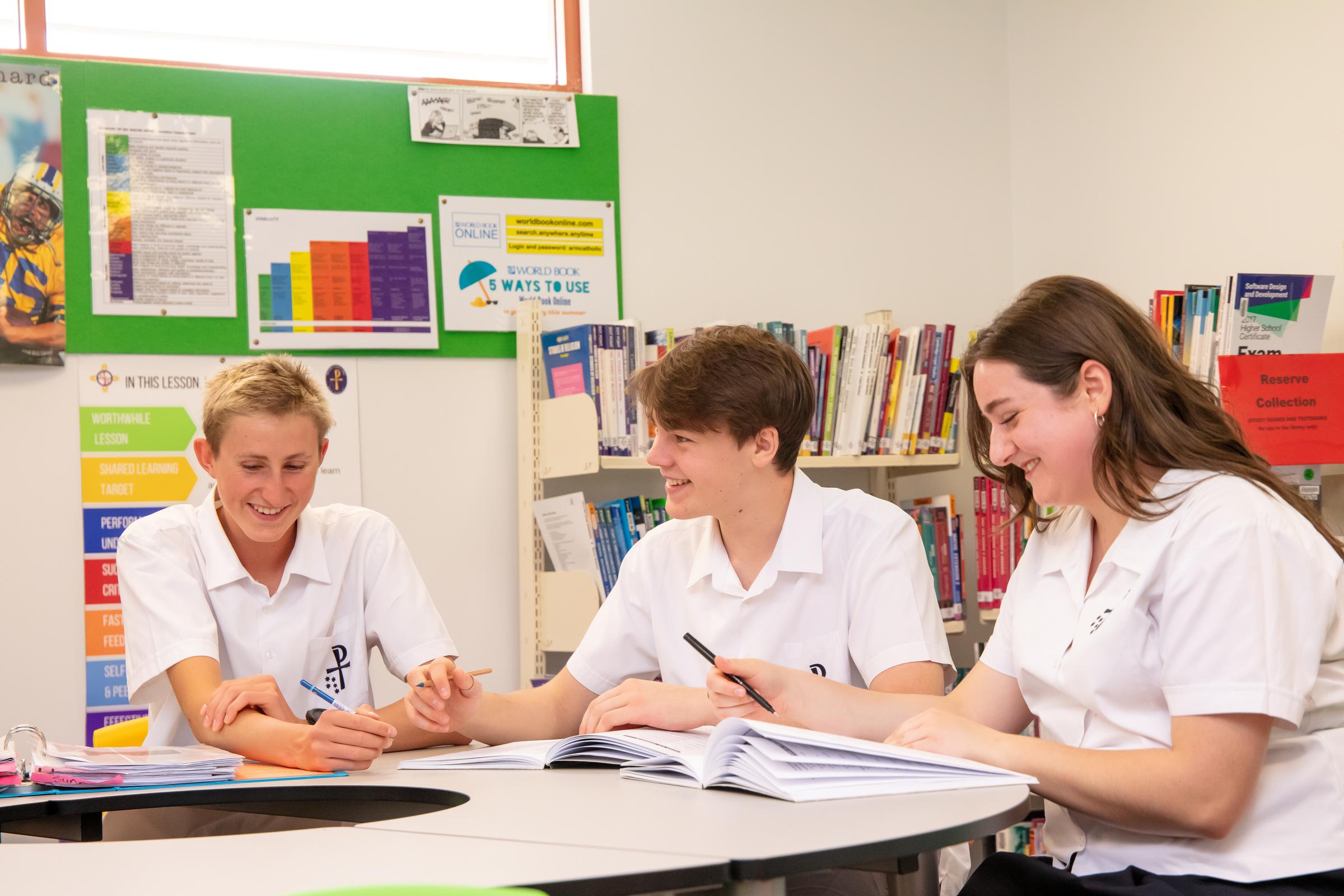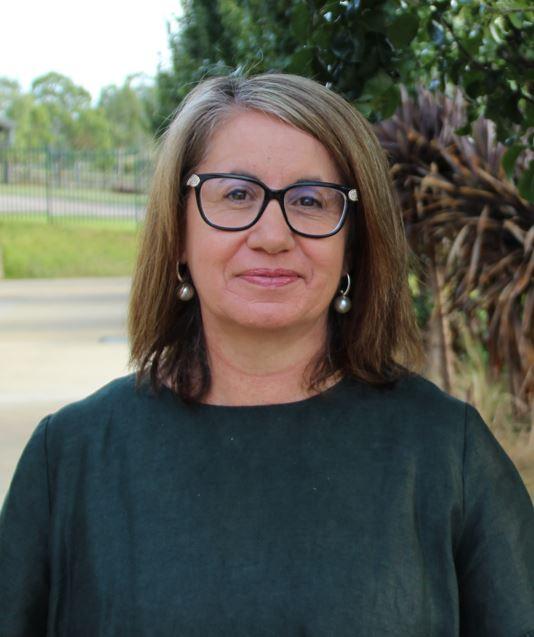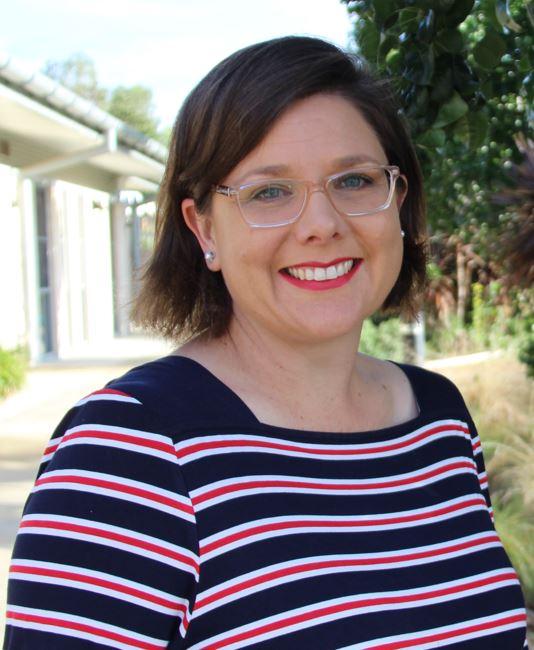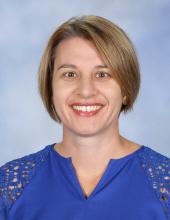Curriculum

Progress Reports
Term 3 Progress Reports for students were released this week on COMPASS. Please take the time to discuss these at home and consider the importance of positive work habits in being part of a strong learning team.
Trial HSC
Year 12 students are in the final school weeks of preparation for the HSC exams in Term 4. The recent Trials were a realistic measure of preparedness and will assist teachers and students to fine tune their efforts for the HSC. All students are encouraged to make the most of the remaining time with their teachers.
NSW Catholic Schools Secondary Curriculum Reform Conference
As part of the NSW Curriculum Reform, the NSW Government asked NESA to develop more than 200 new syllabuses - and these will be rolled out in a staged way, with the first new syllabuses commencing in 2024. Last week a number of staff had the opportunity to attend the Catholic Schools NSW Secondary Curriculum Reform Conference held in Sydney. The two-day event gathered teachers and leaders from across the state to plan for these changes in the future directions of curriculum. It was a chance to plan for optimized learning and engagement and ways to enhance the delivery and implementation processes of the revised 7-10 curriculums.
Clarity Professional Learning - Dr Lyn Sharratt
The Armidale Diocesan schools are engaging in Professional Learning with world renowned educational expert, Dr Lyn Sharratt. Dr Sharratt will be working closely with leaders and teachers in our system to continue to shape the instructional and assessment practices across our schools. The work with Dr Sharratt strengthens the coherence of approaches used in the classrooms at McCarthy.
Yr 11
Year 11 students commence their end of year examinations on Wednesday of Week 9. An examination timetable was shared with students Friday Week 7. Please find below some exam hints and tips.
Last Minute Study
What do you do if you have left your study until the last minute?
In an ideal world, it would be great if all students paid attention, focused and participated in all classes, completed all homework and assessments thoroughly, asked for help throughout the year on anything they didn’t understand, made regular summaries of the work covered in class (preferably at the end of each topic or section) and did their best to learn as they go throughout the year.
But in reality, this doesn’t always happen for every student and every subject.
So what can you do if you have left your study for tests and exams to the last minute?
5 TIPS FOR LAST MINUTE STUDY
- CLARIFY YOUR FOCUS: Before you dive into your study materials, take a moment to identify what topics and concepts will be tested. Reach out to your teachers or classmates if you're unsure about any specifics. Understanding the exam format and question style will guide your study strategy. Create a checklist of subjects and topics you need to cover, ensuring you're not leaving anything out.
2. GATHER MATERIALS: Do you have notes, materials, and textbooks on everything you need to learn? If not, is there a friend who can forward you the resources you have misplaced? Is there an online portal where material from classes is stored? Can you borrow from the library additional books or textbooks on the topics you need to learn? Are past examination papers available?
3. DRAFT A STUDY PLAN: You only have limited time left so you need to make the most of it. Draw up a grid that shows how much time you have left before your exams to study. Decide if you will spend equal time on each subject or if certain subjects need more time. Allocate subjects to the time slots you have then decide exactly what you will do to prepare for each subject. For each subject make a list of what sort of study you should do to prepare for that subject. Brainstorm your ideas on how to prepare, ask your parents and teachers for feedback, and share ideas with your friends.
4. CREATE STUDY NOTES: Target your notes to what will be tested. It is best for learning and memory to make your study notes yourself, but if you have run out of time there are options. See if any of your class materials or textbooks have summarised the sections you need, see if there are study guides available in the library on the topics to learn, or make targeted notes yourself on the key areas you have to memorise. You could also see if there is a friend where you could split the topics between yourself and share the notes you make. Don’t spend too long on this stage, it needs to be completed as quickly as possible.
5. STUDY! What does study actually mean? It means memorising the material you need to know so you can recall it in the exams, and practicing the skills of the subject so you know how to do the types of questions you will have in the exam. To memorise your notes you need to test yourself over and over on them. You could read a section, see what you can write down without looking then check. Then review the things you didn’t know again. Or you could do the same approach reading things out loud and then seeing what you can repeat out loud. Doing questions, practice essays, past exam questions will also help you understand what you know, and what you need to spend more time on.
Then review the things you didn’t know again. Or you could do the same approach reading things out loud and then seeing what you can repeat out loud. Doing questions, practice essays, past exam questions will also help you understand what you know, and what you need to spend more time on.
Remember, the key is to get started. Procrastination won't serve you well at this point. Embrace the challenge, and you'll be surprised at how much you can accomplish when you're focused and determined. Your ability to absorb and apply information quickly is stronger than you think.
Sally Sparke
Assistant Principal - Curriculum
Briony Martin
Leader of Learning and Teaching/Leader of Pedagogy
Nicole Anderson
Leader of Pedagogy/Literacy Coach



